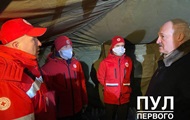26 november 2021 – 08:19
Sanquin has found no infection among donors since 2020
No West Nile virus infections have been found in blood donors in the past two years. If this continues until December 1, Sanquin will end monitoring blood donations for this virus for now. In the absence of new infections, further research costs can be saved. The experience and equipment remain available thanks to Sanquin’s continuous, national research into new outbreaks of diseases and viruses.
In 2020, some infections with the West Nile virus (WNV) were found in Utrecht and the surrounding area, caused by local mosquito bites. Hans Zaaijer, head of the Blood Transmitted Infections Department at Sanquin: “That was an important moment for Sanquin. We had foreseen it, for years this virus has been appearing more and more northerly in Europe during the mosquito season. Recently, the virus had reached Germany across the Alps. Sanquin has therefore proactively expanded its own testing capacity. Because most people do not suffer from a WNV infection, and that is precisely why it can be unnoticed in the donated blood and be transmitted. For a patient who receives that blood, such an infection can be very dangerous. So we have to intercept them in time.”
One positive test result
Sanquin Research tested more than 75,000 donations from Dutch risk areas for genetic material from WNV in 2020 and 2021, but found no infections. “Once a donor appeared to be infected,” adds Hans Zaaijer. “Confirmation tests are necessary for such a positive test result, because WNV is very closely related to, among other things, the Usutu virus. That virus caused significant deaths among blackbirds in 2016-2018. Additional tests ultimately revealed an infection with Usutu virus, fortunately not harmful to people.” If no new WNV infection was found in donors by 1 December, Sanquin will end this donor screening for now. It will not be resumed next mosquito season. If WNV reappears in people at a later date, Sanquin can quickly restart the test protocol: the equipment and experience remain available. With this, Sanquin is constantly testing throughout the country for new viruses and diseases that are harmful.
National outbreak investigation
Hans Zaaijer: “Sanquin had prepared in good time for a virus that we saw coming. The experience with virus outbreaks and installing the new test equipment helps us prepare for future viruses. Think, for example, of our research into Usutuvirus among donors in 2018, and our research on Corona, in which we have provided national figures on how many donors have which antibodies. Sanquin also examines blood donations from large groups of people from the affected area for relevant information with regard to this West Nile virus. We share the conclusions from such research with relevant parties such as the RIVM, and in this way we contribute to the rapid detection of new outbreaks. Whether they are local or national.”
Over Westnijlvirus
The West Nile virus (WNV) is slowly moving north from the south into Europe. It is a virus that spreads through mosquitoes and birds. People can also become infected with WNV through a mosquito bite. When people get infected, they usually don’t get sick. About 80% have no complaints, 20% show mild symptoms such as fever and flu-like complaints. In less than 1% of cases, an infection can lead to serious complaints of the brain and nervous system. Older people and people with a reduced resistance have a greater chance of a more serious disease. If a donor of blood or other body material has a WNV infection, the virus can be transferred to the recipient patient.
Bron: Sanquin Photo: Hans Zaaijer in National Screening Laboratory Sanquin


